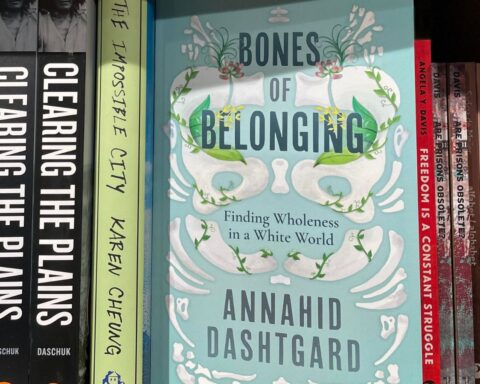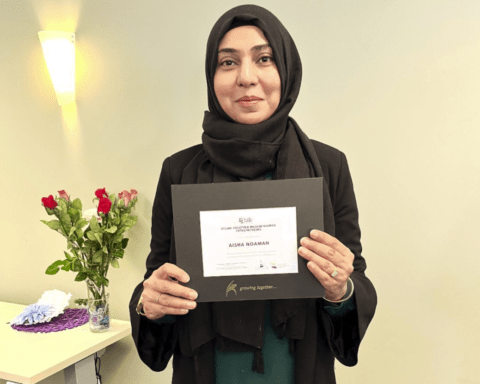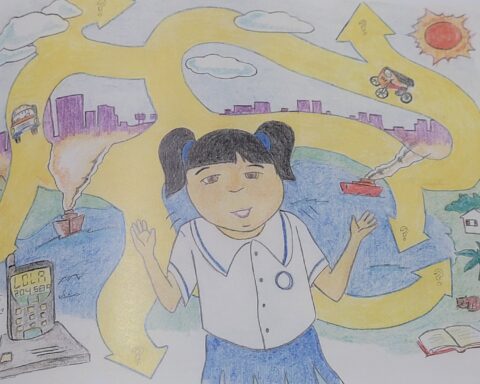Author Pico Iyer may have been based in western Japan since 1987. But he is hesitant to call the country his home; he’s been living there on a tourist visa for the past 28 years.
“Home and the notion of home has never been something I wanted to complete,” he says. “I choose to live on a tourist visa because I can’t ever claim a Japanese (identity) nor do the Japanese want to claim me.”
Speaking to a full auditorium at Ryerson University Thursday night, Iyer shares his ideas on diversity and migration as the featured guest for the Global Diversity Exchange’s (GDX) inaugural annual lecture.
Based out of Ryerson’s Ted Rogers School of Management, GDX is an initiative that aims to provide leadership and analysis that will help service providers work with immigrants through things like employment and entrepreneurship.
Iyer, the author of a dozen books such as The Art of Stillness: Adventures in Going Nowhere and Video Night in Kathmandu, has been writing about his travels, movement and the notions of home for more than 30 years.
“We are all migrants. On some levels, I think we are all minorities.”
Born to Indian parents in Oxford, England, Iyer has been traveling since the age of nine, having moved back and forth from England to California during his childhood.
His adventures have since taken him to places like North Korea, Easter Island, Bhutan and Ethiopia.
During his lecture, the writer talks about how his well-traveled upbringing has allowed him to adapt to new settings.
For him, he has never felt the need to have a sense of belonging in one set place.
“Maybe it’s because I grew up having just one foot outside,” he says. “I feel naturally at home in the margins and outside of things.”
Hesitant to commit to a physical “home,” Iyer also adds that the word’s meaning is always evolving as one’s environment is constantly changing.
“My sense of home and my sense of self has always been a work in progress. I always grew up with the sense that home is not the place I came from. It’s where I’m coming to.”
“We are all migrants. On some levels, I think we are all minorities,” he says, noting that our homes are always changing throughout time with new developments, roads and areas being built.
Instead, he says he believes that home is what he makes it.
“My sense of home and my sense of self has always been a work in progress,” he says.
“I always grew up with the sense that home is not the place I came from. It’s where I’m coming to.”
A Fluid World
Dennis Bedeau, an immigrant from Trinidad and Tobago, says he came to see Iyer’s lecture because he has always been interested in issues involving global diversity, migration and inclusion.
When asked what “home” means to him, he agrees with Iyer that the concept comes from the heart.
“I’ve been in Canada for about 46 years and (when I go back to) my home country, it’s changed. I cannot identify with that anymore,” he says.
However, that doesn’t mean he hasn’t seen change in Toronto either.
“Some of the places in Toronto I’ve been, I cannot identify with them after a few years,” he adds.
“All the parking lots are gone, the farmlands are gone and condos are popping up. The world is very fluid. It’s not static. It’s very dynamic and that’s what I like about everything (Iyer) talked about.”




